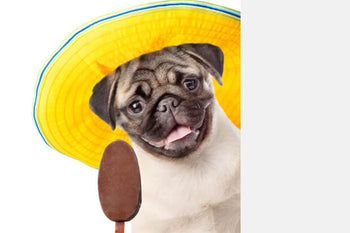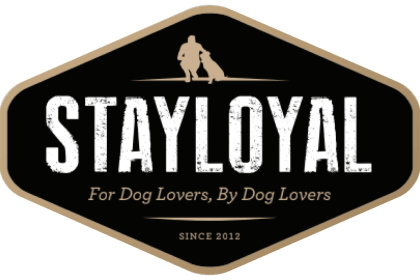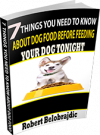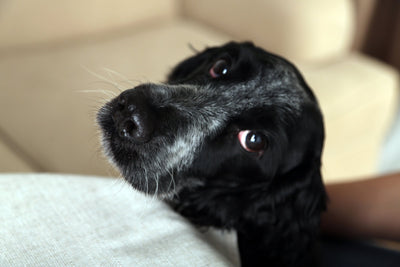What NOT to feed your dog

If you have a dog, then it is vital you know foods your dog can eat and foods that can harm your pup. It is important to remember that dogs are not like humans; they have a different digestive system and are not meant to eat certain foods. If you share table scraps with your dog, then you are increasing the likelihood you are feeding your dog something he or she is not supposed to eat.
There are many times the symptoms of toxic foods take a few days to show up, so if you think your dog has ingested a potentially dangerous food it is important to keep an eye on him or her for a few days. If it is safe for humans, it may not be safe for your canine companion. Here is a list of foods to avoid giving your dog:
Chocolate
Chocolate should never be given to your dog under any circumstances. Chocolate is bad for dogs because it contains caffeine as well as theobromine. Although dark chocolate is good for humans, the darker the chocolate is, the more dangerous it can be to your canine. Although white chocolate is the least toxic of chocolates to dogs, it should still be avoided because it contains some caffeine and theobromine.
If a dog consumes chocolate, then it can cause a dog to vomit, abdominal cramping, muscle tremors, and an irregular heartbeat. Furthermore, a dog can experience dehydration, seizures, and death if he or she eats chocolate. It is never acceptable to give a dog chocolate because even a little can cause severe harm.
Onions
Onions are another food that should always be kept away from your canine companion. Onions contain sulfides, which are sulfurs that are dangerous to a dog. When a dog eats onions, the sulfur in the onions reacts with the cell membranes in the red blood cells of canines, which can lead to the cells exploding. Even the smallest amount of onions can cause your dog to feel lethargic or dizzy. If your dog ingests onions then they could experience:
- Diarrhea
- Vomiting
- Increased heart rate
- Rapid breathing
- Anemia
If you notice your dog has ingested onions, then it is vital to have him or her seen by a vet as soon as possible. Onion toxicity can be treated with detoxification when it is caught early, so seek medical help immediately if your dog has consumed onions.
Avocado
Dogs should not be given avocados under any circumstance. Avocados contain an ingredient known as persin. Although persin does not cause harm to humans, it is very toxic to dogs. If you are growing avocados in your yard, then be sure to keep your pet away from the plants. Persin is found in the leaves, bark, and seeds of the fruit. If you think your dog has consumed avocados, then look out for these common symptoms that accompany avocado poisoning:
- Vomiting
- Diarrhea
- Abdominal cramping
Macadamia Nuts
Macadamia nuts can be extremely dangerous when given to dogs. When a dog eats macadamia nuts, it can cause weakness, vomiting, tremors, and temporary lameness. Symptoms will appear in about 12 hours and last up to two days.
Xylitol
Xylitol is an artificial sweetener that is highly toxic when ingested by dogs. Human’s and dog’s blood sugar levels are controlled from insulin being released in the pancreas. Although this artificial sweetener does not cause insulin to be released from the pancreas in humans, when it is released in a dog’s bloodstream it can cause insulin from the pancreas to be released rapidly. This will result in a significant decrease of blood sugar levels, which can occur as quickly as ten minutes after a dog eats Xylitol.
If a dog ingests a high dose of Xylitol, it can cause liver failure. Xylitol is thought to be 100 times as toxic to canines as chocolate. Symptoms of Xylitol poisoning include:
- Weakness
- Vomiting
- Seizures
- Tremors
- Coma
- Difficulty standing and walking
Raw and Undercooked Eggs
Raw eggs can harbor bacteria that includes Salmonella and E. Coli. These forms of bacteria can cause gastrointestinal issues like diarrhea and vomiting that can also be transmitted to humans. Furthermore, raw eggs have an enzyme called avidin, which will decrease the absorption of biotin. If a dog does not have enough biotin in his or her diet, then it will cause skin and coat problems.
Grapes
Grapes are very dangerous to dogs, and can result in kidney failure. If a dog has ingested grapes, he or she can develop diarrhea and lethargy.
If a dog ingests a large amount of grapes, it can cause acute kidney failure, which will occur in one to three days. There are several signs of acute kidney failure including severe vomiting, dehydration, seizures, and tremors.
If a dog ingests grapes, then as toxicity progresses the dog will not be able to urinate due to kidney failure. A dog may also have bad breath, which will resemble the smell of urine. A dog could eventually fall into a coma and blood pressure will increase.
It is important to remember that raisins are just as toxic as grapes. Because raisins are dried grapes, they are more concentrated, which means they are more toxic. If your dog has ingested raisins or grapes, then it is crucial to seek help immediately.
Cinnamon
Cinnamon should not be given to canines. If a dog eats cinnamon, it can irritate his or her mouth and make your dog sick. If a dog eats too much cinnamon, it can cause his or her blood sugar to be too low and cause a decreased heart rate, liver disease, vomiting, and diarrhea. If a dog inhales powdered cinnamon, then it can cause problems with breathing, and can also cause a dog to choke.
Apple Seeds
Apple seeds should never be given to dogs. Apple seeds contain a toxin called cyanide, which is toxic to dogs. Cyanide can accumulate over time so be aware of this if your dog eats apples from a tree. If a dog has ingested apple seeds, then he or she will show signs of poisoning that include:
- Vomiting
- Diarrhea
- Abdominal pain
- Fever
- Shock
- Dehydration
- Dilated pupils
- Skin irritation
- Cardiac arrhythmia
- Panting
If a dog has ingested apple seeds, then death can occur in as little as three days if left untreated. If you think your dog has eaten apple seeds and shows the referenced symptoms, then seek help as soon as possible.
What to Do if Your Dog has Eaten a Toxic Food
If you think your dog has ingested a toxic food, then it is best to seek medical care immediately. When a dog has eaten a toxic food, a vet can treat your dog and prevent death. Dogs are notorious for eating most anything they come across, and there are many foods that are extremely toxic to dogs, which is why it is important to pay attention for any signs of food poisoning.
Keeping your pup filled with the key nutrients he needs could help him from seeking out other potentially harmful foods. Give our bestselling grain-free food a try and be sure to pass this important information along to other dog owners you know!








